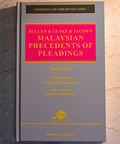![Civil Law Act 1956 (Act 67) [As at 5th November 2024]](http://www.joshualegalartgallery.com/cdn/shop/files/2_f39145c9-c808-4934-b89f-8b2a9f53183a.png?v=1752132035&width=480)
![Civil Law Act 1956 (Act 67) [As at 5th November 2024]](http://www.joshualegalartgallery.com/cdn/shop/files/3_7c43eb52-ce46-4b3c-bc76-596a7af0900c.png?v=1752132035&width=480)
![Civil Law Act 1956 (Act 67) [As at 5th November 2024]](http://www.joshualegalartgallery.com/cdn/shop/files/4_a298f09f-d74d-4271-8e29-6d8fca1a48cb.png?v=1752132035&width=480)
![Civil Law Act 1956 (Act 67) [As at 5th November 2024]](http://www.joshualegalartgallery.com/cdn/shop/files/cup_d8eb5f8d-c917-4f03-acfd-5f7c8404b6a8.jpg?v=1752132030&width=480)
![Civil Law Act 1956 (Act 67) [As at 5th November 2024]](http://www.joshualegalartgallery.com/cdn/shop/products/JLAG_11a70163-e743-4324-a570-9ec6504b5b22.jpg?v=1752132030&width=480)
Civil Law Act 1956 (Act 67) [As at 5th November 2024]
Civil Law Act 1956 (Act 67)
An Act relating to the civil law to be administered in Malaysia.
Detailed Contents Of Civil Law Act 1956 (Act 67) :
The Civil Law Act 1956 (Act 67) is an important piece of legislation in Malaysia that governs various aspects of civil law. As of 5th November 2024, the Act remains in force and provides a framework for resolving civil disputes, enforcing contracts, and protecting the rights of individuals.
Some of the key provisions of the Civil Law Act 1956 are as follows:
-
Contracts and Agreements: The Act provides for the formation, interpretation, and enforcement of contracts and agreements. It also outlines the various remedies available to parties in the event of a breach of contract.
-
Property Rights: The Act governs the transfer of property rights and outlines the various types of property ownership recognized in Malaysia. It also sets out the rules for the transfer of property through wills and inheritance.
-
Torts: The Act sets out the principles of tort law, which governs civil wrongs or injuries caused by one party to another. It outlines the various types of torts recognized in Malaysia and the remedies available to injured parties.
-
Limitation Periods: The Act specifies the time limits within which legal action must be taken in civil cases. These limitations vary depending on the type of case and the circumstances of the dispute.
-
Evidence: The Act provides rules and procedures for the presentation and admissibility of evidence in civil cases. This includes rules around the examination of witnesses, the use of expert testimony, and the presentation of documentary evidence.
-
Jurisdiction: The Act sets out the jurisdiction of various courts and tribunals in Malaysia. It also specifies the rules around appeals and the enforcement of judgments.
Overall, the Civil Law Act 1956 is an important piece of legislation that underpins civil law in Malaysia. It provides a framework for resolving disputes, protecting property rights, and ensuring that individuals are treated fairly and justly in civil matters.


































